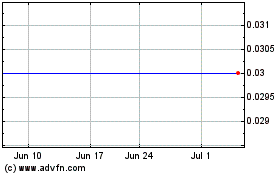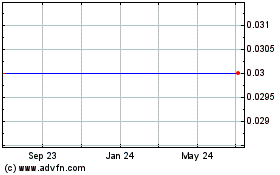Synergy Pharmaceuticals Presents Results from Study Examining Patient & Physician Perceptions & Experiences with Irritable Bo...
October 17 2017 - 10:30AM
Business Wire
Results from the BURDEN IBS-C Study
demonstrate physical, psychosocial and clinical impact of IBS-C,
indicating that IBS-C has a substantial burden on patients’
lives
Synergy Pharmaceuticals Inc. (NASDAQ:SGYP) announced today new
findings highlighting the frustration of patients suffering from
irritable bowel syndrome with constipation (IBS-C) and the
perceptions of healthcare providers (HCPs) who treat these
patients. The online questionnaire, designed to develop a better
understanding of the experiences and attitudes associated with
IBS-C, revealed many patients experienced stress and lost
productivity when managing this condition. Patients and HCPs also
noted a lack of satisfaction in currently available prescription
treatments for IBS-C.
Detailed results from the BURDEN IBS-C Study (Better Understanding
and Recognition of the Disconnects, Experiences, and Needs of Patients with Irritable Bowel
Syndrome with Constipation) were presented today at World
Congress of Gastroenterology (WCOG) at American College of
Gastroenterology (ACG), in Orlando, Fla. Findings are based on
results from the online questionnaire of more than 1,300 patients
and 325 HCPs.
IBS-C has a negative impact on a patient’s day-to-day life,
including productivity.
- Nearly two out of three patients (60%)
described IBS-C symptoms as somewhat to extremely bothersome.
- 43 percent of patients said they had
been “frustrated” with IBS-C, with more than a quarter of
respondents (28%) noting their condition was “stressful.”
- Patients reported that their
productivity at work or school is impacted four out of every 30
days each month by IBS-C, with respondents also missing
approximately 1.5 work or school days per month due to the
condition.
HCPs recognized patients’ frustration with IBS-C symptoms,
yet underestimate how many patients have “accepted” their
condition.
- The majority of HCPs acknowledged that
their patients were frustrated (76%) and stressed (65%) by symptoms
of IBS-C.
- HCPs were less likely to recognize that
patients were “accepting” of the impact of their condition,
compared to the 39 percent of patients who said they had accepted
their IBS-C.
Many HCPs and patients feel current treatments do not
sufficiently address IBS-C symptoms.
- Among the patients that were currently
using a prescription IBS-C treatment, 78 percent were not
completely satisfied. More than half (51%) of these patients cited
efficacy as a reason for not being completely satisfied with
current prescription IBS-C treatments.
- 21 percent of HCPs were satisfied or
completely satisfied with current prescription treatments, with
more than half (55%) of those who were not satisfied or completely
satisfied citing inadequate efficacy and 41 percent citing diarrhea
as challenges most frequently experienced in treating IBS-C.
“Results from the BURDEN IBS-C Study highlight the frustration
patients’ have about the condition, suggesting patients and HCPs
alike face real challenges with the current management of IBS-C,”
said Eamonn M.M. Quigley, M.D., Director, Lynda K. and David M.
Underwood Center for Digestive Disorders, Houston Methodist
Hospital. “These data provide further evidence of the substantial
burden IBS-C can have on a person’s quality of life and point to
the need for both HCPs and patients living with IBS-C to maintain
an open, productive dialogue about a patient’s health and treatment
options.”
About the BURDEN IBS-C Study
The BURDEN IBS-C (Better
Understanding and Recognition of the Disconnects, Experiences, and Needs of Patients with Irritable Bowel
Syndrome with Constipation) study consisted of more than 1,300
patients who met IBS-C criteria (mean age 46 years; 73 percent of
respondents were female) and completed the author-developed,
IRB-approved online questionnaire. The study also evaluated,
through an approximate 45-minute questionnaire, more than 325
healthcare providers who treat patients with IBS-C.
About Irritable Bowel Syndrome with Constipation
(IBS-C)
Irritable bowel syndrome (IBS) is a chronic gastrointestinal
disorder characterized by recurrent abdominal pain and associated
with two or more of the following: related to defecation,
associated with a change in the frequency of stool, or associated
with a change in the form (appearance) of the stool. IBS can be
subtyped by the predominant stool form: constipation (IBS-C),
diarrhea (IBS-D) or mixed (IBS-M). Those within the IBS-C subtype
experience hard or lumpy stools more than 25 percent of the time
they defecate, and loose or watery stools less than 25 percent of
the time. It is estimated that the prevalence of IBS-C in the U.S.
adult population is approximately 4 to 5 percent.
About Synergy Pharmaceuticals Inc.
Synergy is a biopharmaceutical company focused on the
development and commercialization of novel gastrointestinal (GI)
therapies. The company has pioneered discovery, research and
development efforts on analogs of uroguanylin, a naturally
occurring and endogenous human GI peptide, for treatment of GI
diseases and disorders. For more information, please visit
www.synergypharma.com.
Forward-Looking Statement
Certain statements in this press release are forward-looking
within the meaning of the Private Securities Litigation Reform Act
of 1995. These statements may be identified by the use of
forward-looking words such as "anticipate," "planned," "believe,"
"forecast," "estimated," "expected," and "intend," among others.
These forward-looking statements are based on Synergy's current
expectations and actual results could differ materially. There are
a number of factors that could cause actual events to differ
materially from those indicated by such forward-looking statements.
These factors include, but are not limited to, substantial
competition; our ability to continue as a going concern; our need
for additional financing; uncertainties of patent protection and
litigation; uncertainties of government or third party payer
reimbursement; limited sales and marketing efforts and dependence
upon third parties; and risks related to failure to obtain FDA
clearances or approvals and noncompliance with FDA regulations. As
with any pharmaceutical under development, there are significant
risks in the development, regulatory approval and commercialization
of new products. There are no guarantees that future clinical
trials discussed in this press release will be completed or
successful or that any product will receive regulatory approval for
any indication or prove to be commercially successful. Investors
should read the risk factors set forth in Synergy's Annual Report
on Form 10-K for the year ended December 31, 2016 and other
periodic reports filed with the Securities and Exchange Commission.
While the list of factors presented here is considered
representative, no such list should be considered to be a complete
statement of all potential risks and uncertainties. Unlisted
factors may present significant additional obstacles to the
realization of forward-looking statements. Forward-looking
statements included herein are made as of the date hereof, and
Synergy does not undertake any obligation to update publicly such
statements to reflect subsequent events or circumstances.
View source
version on businesswire.com: http://www.businesswire.com/news/home/20171017005355/en/
Synergy Pharmaceuticals Inc.Gem Hopkins, 212-584-7610VP,
Investor Relations and Corporate
Communicationsghopkins@synergypharma.com
Synergy Pharmaceuticals, Inc. (NASDAQ:SGYP)
Historical Stock Chart
From Mar 2024 to Apr 2024

Synergy Pharmaceuticals, Inc. (NASDAQ:SGYP)
Historical Stock Chart
From Apr 2023 to Apr 2024
